The bladder can only hold 800ML of water, so why can some people drink 10 beers without going to the bathroom?
You should be talking about people who are older and this should be predominant because their metabolism slows down, so after drinking. They go to the bathroom less often and after a long time before going to the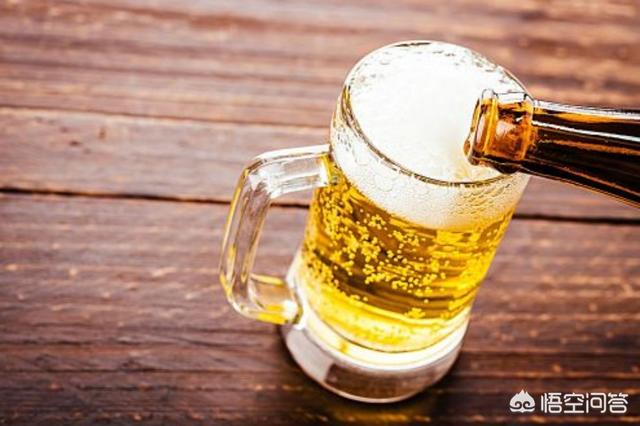
. I just know an oldest brother. 66 this year. He's probably struggling with ten bottles. It takes eight bottles of our 550m bottle of Snowflake Special here to go to the bathroom. When I was young, about 20 years old, I used to have to go to the bathroom three times for one beer. Now also after drinking three bottles of beer, start to go to the toilet, and, the interval is not long. It should be said that each person's bladder has a different amount of urine, and each person's physical condition is different. So after drinking, the reaction should also be different.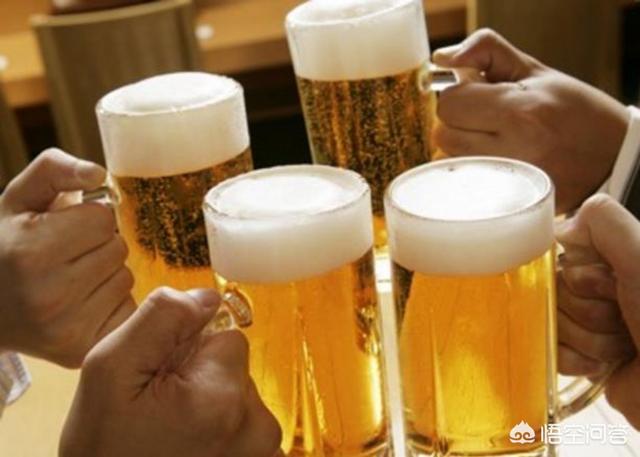
The normal adult bladder capacity is 300 to 500 ml, with a maximum capacity of 800 ml. The bladder wall consists of mucous, muscular, and plasma layers from the inside out. The bladder muscularis propria is composed of smooth muscle fibers that are stretchable and viscoelastic. This makes the bladder a reservoir of urine with a capacity range of expansion and contraction. In women, the bladder has a smaller capacity than in men. Normally, a normal person's bladder holds 800ml of urine, which is almost the limit.
Let's look at how our urine is formed. The food that a person eats and the water that they drink, passes through the digestive system into the bloodstream where it is transported throughout the body. It transports nutrients and some water to the cells. The wastes and excess water produced by the cells are then transported to the urinary system, where they are filtered by the glomeruli and reabsorbed by the renal tubules to produce urine.
Urine is stored in the bladder before it is excreted. When the urine in the bladder, is stored to a certain capacity, it sends a signal to the central nervous system, our brain, and that's when a person develops the will to urinate. And the capacity of a person's bladder varies from person to person. Some people have a large bladder capacity others have a small bladder capacity. If you have a small bladder, you're more likely to go to the bathroom after drinking some water or alcohol.
. Normally, people who want to go to the bathroom after drinking beer are proof of healthy kidneys. After drinking beer, people who go to the toilet after 15 minutes for 20-year-olds, after 20 minutes for 30-year-olds, and within 30 minutes for 40-year-olds are healthy bodies. In short, the stronger the kidneys are, the sooner you can go to the bathroom. This is the healthy situation. But because people are different, and because there is a urinary system for urination. The bladder sphincter is an important organ in the urinary system, and if the bladder sphincter becomes loose. If the bladder sphincter becomes loose, the elasticity of the bladder decreases. The volume of urine stored in the bladder is reduced. It is easier to become conscious of urination and more frequent urination will occur.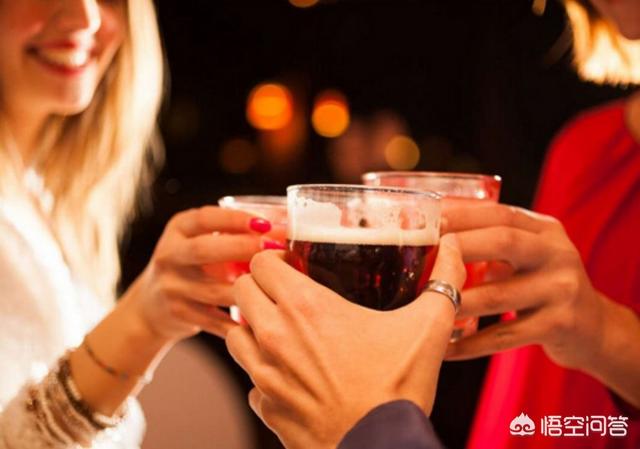 On the whole, people who don't like to go to the bathroom when they drink should have a slower metabolism. After drinking alcohol, the body's metabolism is slower, and the alcohol tolerance is stronger, which is also known as the ability to drink, slow absorption of alcohol. In addition, moderate drinking, according to their own physical condition, according to their ability. Excessive alcohol abuse is very harmful to one's health. May your friends be healthy and happy every day!
On the whole, people who don't like to go to the bathroom when they drink should have a slower metabolism. After drinking alcohol, the body's metabolism is slower, and the alcohol tolerance is stronger, which is also known as the ability to drink, slow absorption of alcohol. In addition, moderate drinking, according to their own physical condition, according to their ability. Excessive alcohol abuse is very harmful to one's health. May your friends be healthy and happy every day!
I once saw a famous jingle, "Either you're in xx place, or you're on your way to xx place."
It's also very fitting to use this ad-lib as an answer to this question.
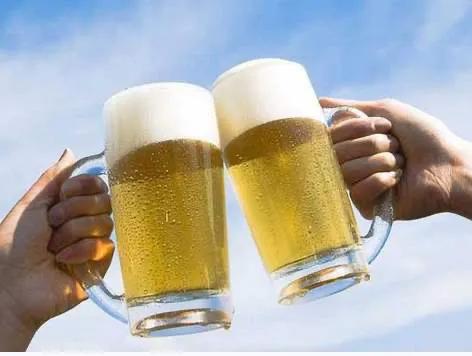
It is true that 5,000 milliliters of beer were consumed, but not all of that 5,000 milliliters of beer went into the bladder, it was on its way to the bladder, and it is also possible that a large portion of it was still in the drinker's stomach. It is important to realize that the volume of the gastrointestinal tract is also very large. It is capable of holding 3000-5000 milliliters of water.

Drinking into the beer to become urine must also be absorbed through the digestive tract, into the bloodstream, and finally as a metabolic waste, the formation of urine is excreted from the body. The main component is water beer, in the process of forming urine, about 80% -90% will be reabsorbed back into the bloodstream, through countless times the cycle, urination, the water in the beer can be completely out of the body.
Therefore beer is a complex process of digestion, absorption and metabolism in the body, rather than the 5,000 milliliters of beer consumed going straight to the bladder, as this friend thought.

In the short term, he may not have to go to the bathroom when he drinks beer, but he will go to the bathroom a lot afterward. Urine is constantly being produced, and the bladder, as a muscular organ, has a limited volume that can be expanded, so holding it in and not going to the toilet must be very hard for him!
I am Dr. Sun, telling you interesting stories about the practice of medicine. Follow Dr. Sun on Sugar for continued quality health knowledge!
Thanks for the invitation! We must all correct the misconception that the human body doesn't drink as much as it drains, and although the bladder is only 800 milliliters, there is the potential for about 5,000 to 6,000 of blood in our entire body.
There is a very wrong notion that people drink as much as they need to drain, and this is very wrong.
First of all, there is definitely a difference between the amount we drink in and the amount we drink out. Input is the amount we drink, and in the dinner party not only drink, but also eat food, eat all kinds of food, these are counted as input, so he is not just a 500 ml bottle of beer so simple, and output contains a lot of urination is of course the most basic output, and then there is also the bowel movement is also our output, some of the stool is dry, and some of the stool is wet, and here should be counted as a certain amount of water output. Some stools are dry, some stools are wet, and that counts as a certain amount of water out. Then you use your breath water vapor, and the body surface of the evaporation of water vapor, sweating, saliva, etc., these are all counted as the amount of water. The human body in the day is not obvious water loss that is the human body breathing or skin evaporation of water, roughly, there are about 1000 milliliters, so the amount of input and output is never balanced.
Secondly, if a person were to simply drink beer, 10 bottles of beer would be about 5,000 milliliters. We have to understand that beer is a kind of hypertonic liquid, that is to say, its osmotic pressure is relatively large, in layman's terms, it is equivalent to you drink a concentrated salt water. When you drink a concentrated salt water, then the body's internal water is to be diluted, so that we can guarantee the normal circulation of the human body. This is a normal physiological metabolic process, no one can change.
So when you drink hypertonic fluids, the water inside the body has to be diluted appropriately, so the burden on the gastrointestinal tract can be very high, and the gastrointestinal tract it creates some very fluctuating release of water. And the body can only participate in our normal body circulation when it maintains this hypertonic fluid into a relatively normal osmotic pressure fluid. Drinking 5,000 milliliters of beer, even he needs 7,000 milliliters of fluid to dilute before entering the overall circulation.
Finally, there is some liquid that can not enter the normal circulation, then stay in the body, so drinkers will become more and more fat. For the body metabolism is relatively fast, it is possible to go through the urinary system of excretion, then will discharge a large amount of urine, this is a principle of osmotic diuresis. But there are also people whose body metabolism is relatively slow, then there will be a lot of water in the body.
Then there is the experience of being so thirsty on the 2nd day or night after drinking alcohol that you have to drink a lot of water to replenish it, and even drinking as much water as you can does not help to alleviate it. This is also a manifestation of hypertonic dehydration.
So don't look at the bladder as having a capacity of only 800 milliliters and drinking 5,000 milliliters of alcohol, when in fact there is a completely unequal distribution of blood and overall fluid in there. In fact, the capacity of the bladder is rarely 800 milliliters, and generally speaking, it is 400 to 500 milliliters.
On the whole, do not drink too much alcohol, because the average person thinks that how much you drink is how much you expel. This view is very wrong, after you drink alcohol, the human body will have a very dramatic fluctuation process. It not only involves the urinary system kidney excretion, but also needs to involve the liver system alcohol detoxification, but also involves the whole blood circulation system osmotic pressure stabilization, but also involves the cardiac system to maintain the normal blood flow of the whole body. It also has to involve the nervous system to maintain one's sanity.
Many people drink the 2nd day and headache, dizziness, nausea and vomiting, want to drink water, diarrhea and various other clinical symptoms.
It is truly recommended to drink in moderation, never too much for the body, he is not a very good measure.
If you have any questions you can private message me, not able to read on this, but can give you a relatively correct advice. Feel free to like, comment, retweet, and follow me to bring you to the real world of neurosurgery (brain surgery).
This is because the beer you drink goes inside your stomach first, not directly into your bladder!
Whether you drink beer or tea, downers, etc., it first passes through the mouth, the esophagus, and then into the stomach, and below the stomach is the duodenum, followed by the small intestine, the large intestine, which is our body's digestive system, and there is no direct passage to the bladder, and if there is, there's something wrong with it, and it's a developmental abnormality.
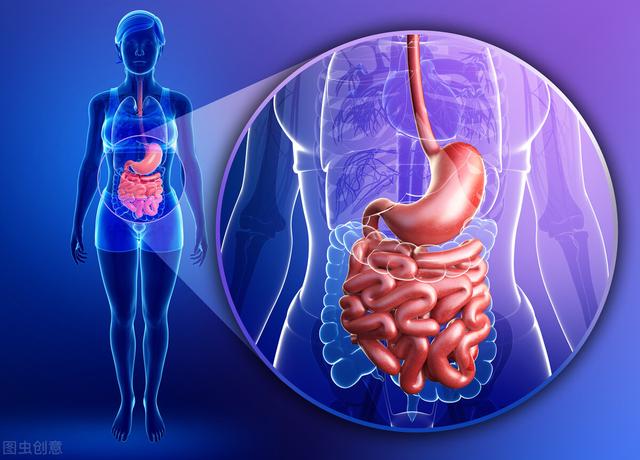
So how does beer get inside our bladder?
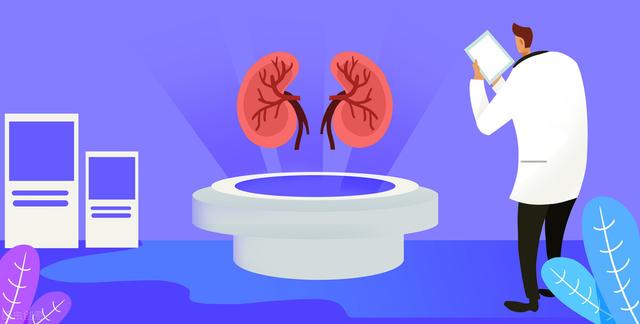
To draw out our urinary system, the kidneys. The stomach is the equivalent of a blender in the body, with a weak absorption function, mainly responsible for absorbing alcohol and a small amount of water, the main components of beer are alcohol and water, with most of the water absorbed in the intestines.
The stomach absorbs some of the alcohol, the intestines absorb some of the alcohol and most of the water, and the water and alcohol later enter the bloodstream.
Let's look at alcohol absorption first!
At 30 seconds: alcohol does not need to be digested and is absorbed directly into the bloodstream through the gastric mucosa. The brain starts to get excited and your self-control starts to decline.
After 10 minutes: your heart rate increases, your brain gets more oxygen, and you feel euphoric.
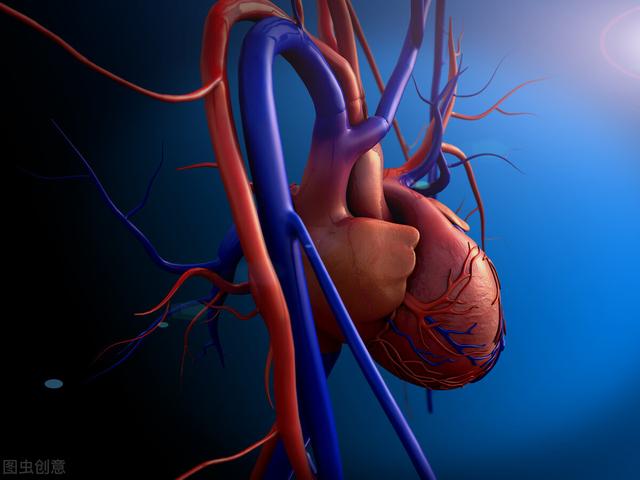
If you drink carbonated beverages at the same time, it will speed up the absorption of alcohol.
After 30 minutes: there is flushing and sweating, at the same time, due to the stimulation of alcohol, the stomach and intestines begin to secrete a lot of digestive juices and feel a burning sensation in the stomach.
After 1 hour: alcohol peaks in the organism, the brain begins to secrete adrenaline, cortisol, you get more excited, the alcohol is strong, you begin to mouth off, looking forward to communicating with the opposite sex, and even reproduce.
At the same time, the body begins to work, 10% of the alcohol with breathing, sweating out of the body, most of it into the liver, the liver to metabolize alcohol, you need to metabolize alcohol into acetaldehyde, then metabolized to acetic acid, most Asians lack the enzyme acetaldehyde dehydrogenase, so the acetaldehyde retention let you produce facial redness, and even nausea, vomiting, headache.

Also alcohol gets into the cells and destroys cellular genes, which is why alcohol causes cancer.
After 90 minutes: alcohol causes vasodilation, heat dissipation, you feel cold, and at the same time the alcohol breakdown metabolite is also water, and the organism produces a protective response that stimulates you to go to the toilet and urinate.
If you're not up to the challenge, your stomach also reacts protectively, secreting large amounts of mucus in order to minimize the stimulation of alcohol, causing you to become nauseous and vomit.

At the same time, after the euphoria comes the low point, where the brain starts to react sluggishly, gradually loses the ability to think, and starts hugging and kissing telephone poles and sitting next to garbage cans to tell your dreams.
After 120 minutes, the alcohol continues to travel through the body, the liver is working hard to metabolize the alcohol as best it can, but has a limited ability to watch as the alcohol damages the brain and destroys cells.
After 180 minutes: Alcohol can inhibit your memory, you feel tired and lethargic, and if your drinking buddy is of low character, the disconnected you could make tomorrow's headlines, where a man was found frozen to death in a park, initially considered to be the result of drunkenness.

After 5 hours: even though you're resting, your liver, kidneys, and heart are still working non-stop, busy breaking down the alcohol.
After 10 hours: Since beer is a hypertonic liquid, the organism is in a state of dehydration and you feel thirsty and want to drink water.
After 15 hours: after waking up from sleep, headache, dizziness, still unable to concentrate, occasional burning in stomach, acid reflux.
At the same time lethargy hits, as alcohol metabolism requires a lot of energy.
After 24 hours: alcohol is broken down and discharged from the body after a fierce battle in the organs, but the damaged cells cannot be repaired. Long-term alcoholism, memory loss, limb tremor, decreased immunity, obesity and so on.
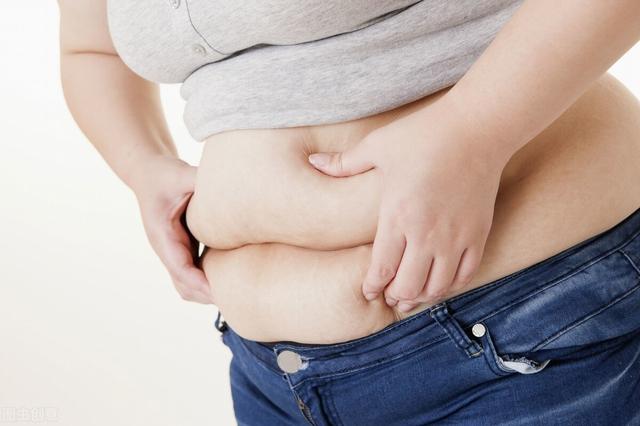
Water absorption!
Water is much simpler, and as the blood flows to the kidneys, the kidneys start hoofing it, filtering it, absorbing the sodium ions, potassium ions, proteins, etc. that are useful to you, maintaining electrolyte and acid-base balances, and excreting metabolic wastes such as creatinine.
At the same time, urine passes through the collecting ducts, renal calyces, and ureters into the bladder. When the bladder hosts more than 400 ml of urine, you have the urge to urinate, but you can control it.
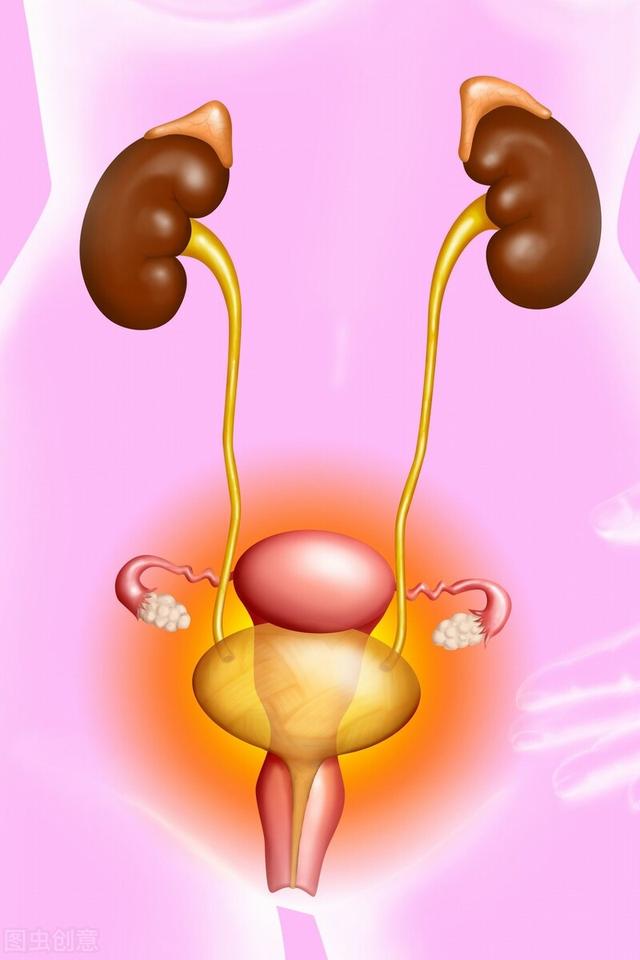
When the deposit of urine reaches 700ml, the desire to urinate increases significantly and the urethral muscles begin to contract regularly, but your willpower is still in control.
When the pressure in the bladder increases further, there is a significant pain and you have to urinate!
Summary:
10 bottles of beer, 6000ml or so, spread throughout the stomach, intestines, blood, kidneys, bladder, blood vessels, etc.
So the slow metabolism of the organism is able to drink 10 bottles in a row without going to the toilet!
But a little drink is good, big drink hurt, if you drink beer to go to the toilet have to look forward and backward, this drinking game not to participate in it!
Are you drinking water directly into your bladder? That's awesome.
Because drink in the wine will not immediately into the blood, in your stomach, intestines, 10 bottles of beer 500ML a bottle, 5000 milliliters of water put into the human digestive tract is completely put down.
It then goes through absorption in the small intestine, not all 5000 ML is absorbed, only a portion of the water, and nutrients, and then it also needs to go through glomerular filtration to form urine, and then reabsorption in the renal tubules to form the final urine that goes into the bladder.
Beer contains sugar, and sugar is diuretic. His body is producing urine while he keeps drinking and his bladder is almost full.
So I can tell you very responsibly that the person who drinks 10 beers and doesn't go to the restroom, don't look at him as a tiger, he must be holding it in much more pain than you can imagine.
In our life, some people drink a small glass of water and think about going to the bathroom, but there are others who drink a lot of water and after a long time do not think about going to the bathroom, and theWhile our bladders can hold 800ml of water, some of us can drink 10 beers without going to the toilet.What the hell is that for?
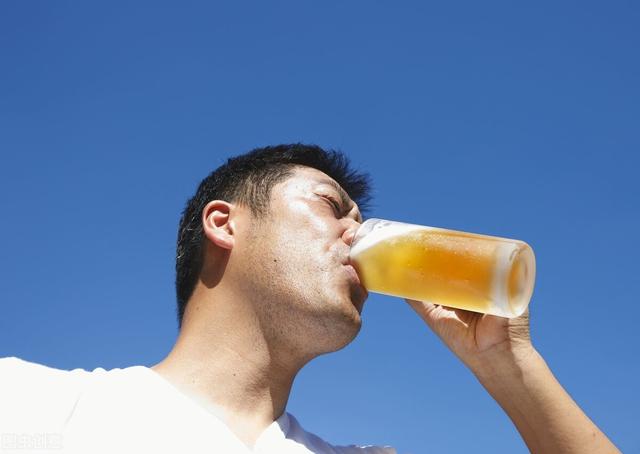
In general, when we take in the amount of water in our bodyExceeds bladder capacityAfter that, our digestive system transports some of that water through the bloodstream to the cells of the body, theWhen the cells have "drunk enough" water, the excess water is transported to the urinary system, where it is processed by the kidneys to produce urine, which is stored in the bladder.
It is not the case that you will drain as much water as you drink, so it goes back to what was stated in the question, that while the bladder can hold 800ml of water, some people can drink 10 beers without going to the toilet.
Going to the bathroom after drinking is commonly referred to as "drinking through" for drinkers, and the more you drink, the more flavorful your drink becomes. I usually get through after 3 or 4 beers, and then I can enjoy the beer and the food at the same time. For some people who drink 10 bottles of beer can not pass or drink a lot of beer can not pass, generally seen in two cases: 1, can eat and drink, drink a lot of food also eat a lot of beer in the water and food mixed in the intestinal lumen, the absorption is slow; 2, a lot of sweating, beer is generally used as a summer drink, a lot of people drink while sweating, sweat to get rid of the excess water.
The male bladder has a capacity of around 500ml and can store a maximum of 800ml of urine. 10 bottles of beer total around 3~6L (from a 300ml bottle in KTV to a 650ml bottle in Raiders of the Lost Ouzo). 10 bottles of beer is far more than the bladder capacity, so why can some people not go to the toilet.
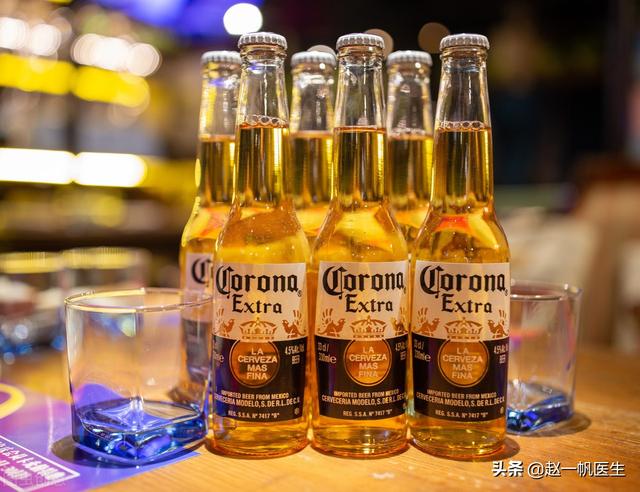
Water absorption and excretion
Sources of body water include drinking water and water from food. This water is absorbed through the stomach, duodenum, small intestine, large intestine, etc. (mainly through the small intestine) into the blood circulation, circulates to the lungs where it can be excreted partly through respiration, circulates to the surface of the skin where it can be excreted partly through sweating, circulates to the kidneys where it can be excreted partly through the kidneys, and partly with the bowels.
Under normal circumstances, the normal human body daily intake of about 2 ~ 2.5L of water (including water in food), 1 ~ 1.5L through the kidneys, respiratory excretion of about 400ml, skin excretion of about 500ml, stool excretion of about 100ml, the overall water intake and excretion to maintain a dynamic balance.
In terms of where the water went, where did the water from the 10 beers hide?
1. In the intestinal lumen.
People who "eat more and drink more" have more intestinal lumen contents (a mixture of food residue and water), and the gastrointestinal secretion of digestive juices increases, so that the intestinal lumen can easily hold 2~3L of water. For example, in the movie "Lost in Transit", Wang Baoqiang, played by Wang Bao, drank a bottle of about 5L of milk before getting on the plane. For the average person, thirst can easily drink about 1L of water.
2. Circulating blood volume.
The blood in the human body is about 4~5L, basically maintains dynamic balance, fluctuation within 10% has little effect on the body, that is to say, the blood volume can be easily increased by 500ml has little effect on the body.
3. Increased skin perspiration.
During the day, the skin does not sweat 500ml, when exercising or the external environment is hot, some people can sweat up to 1~2L in 1 hour.I myself found that I can dehydrate about 2 pounds through sweating by measuring my body weight before and after physical exercise, and it is similar when drinking alcohol or when the weather is hot.
Looking through these three pathways, the human body can store and excrete 3.5 to 5.5L of water, or about 10 bottles of beer, in a short period of time.
It's not healthy to go through 10 beers.
1, the body added so much water, the burden on the stomach, intestines and heart are relatively large.
Alcohol dilates blood vessels and enhances metabolism, and beer ingested with large amounts of water can increase the pressure on the heart to pump blood, which can be quite dangerous for some people with heart conditions.
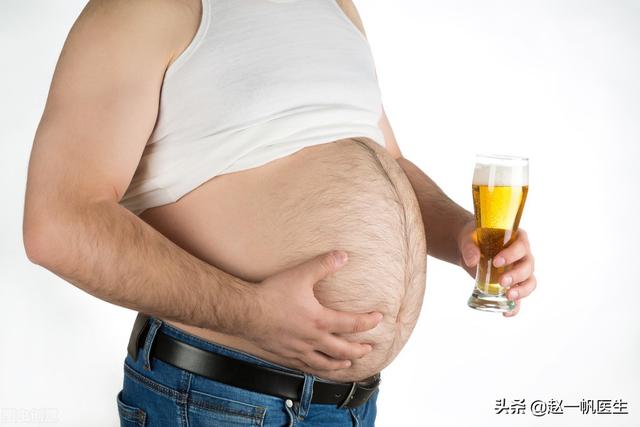
2, sweating metabolic waste is limited, most of the metabolic waste needs to be excreted through the urine. A large amount of sweating will cause the accumulation of metabolic waste, increase the concentration of waste in the blood, easy to elevate blood sugar concentration, increase the concentration of uric acid induced gout.
No one else knows, I usually have to go to the bathroom after about 4 beers in a half hour, and after the first time I have to go more often.
Not all of it has entered the bladder yet; some of this water is absorbed by the body. Another part is on its way to being absorbed and entering the bladder.
This question and answer are from the site users, does not represent the position of the site, such as infringement, please contact the administrator to delete.